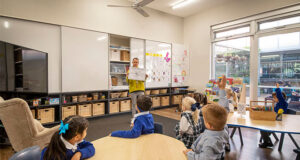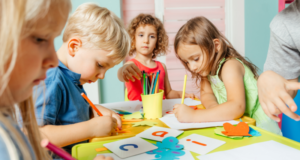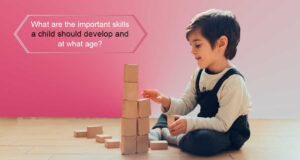Education is a process that requires dedication and collaboration from both teachers and students. The knowledge, values, and skills imparted to children at an early age form the foundation of their academic journey and personal development. In today’s fast-paced world, children are exposed to numerous distractions and influences, making it even more critical for teachers to use thoughtful, engaging, and effective teaching methods. Early childhood courses equip teachers with essential knowledge and techniques to nurture young learners with care, patience, and understanding, ensuring they receive a strong educational start. Pursuing an early education degree is one of the most effective ways for educators to gain the skills needed to handle this important responsibility.
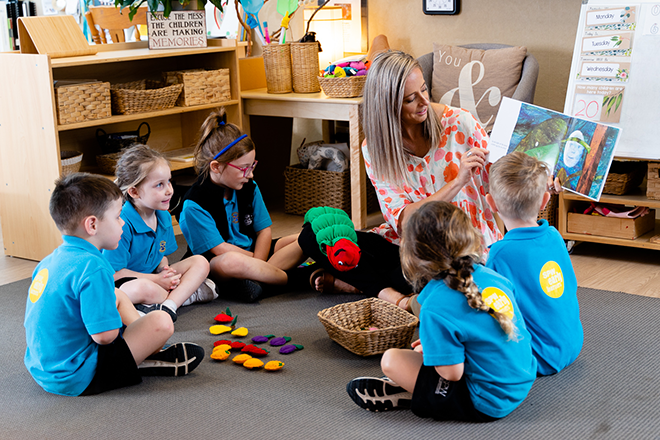
Understanding Children’s Nature and a Teacher’s Role
Managing and educating children under the age of eight can be a challenging yet rewarding task. Handling a group of ten to twenty children requires immense patience, creativity, and responsibility on the part of the teacher. Young children are curious and energetic, which can sometimes lead to restlessness and mischief. A skilled teacher must create a nurturing classroom environment that feels safe and welcoming, much like a second home. By encouraging open communication, teachers help children build friendships and develop social skills, which are vital for their growth.
Teachers also play a key role in ensuring the safety of their students. They must introduce safety protocols and precautionary measures in a way that is easy for children to understand. Simple lessons about personal safety, health, and basic manners contribute significantly to the child’s development. The trust parents place in teachers to shape their child’s future highlights the importance of a teacher’s role as both an educator and a guide. Teachers who pursue an early education degree are better prepared to meet these challenges effectively.
Types of Early Childhood Courses and Their Benefits
Early childhood education involves several specialized courses designed to train teachers to handle young learners effectively. These courses help educators address the unique needs of children while promoting a healthy, safe, and engaging learning environment. Below are some key courses and their benefits:
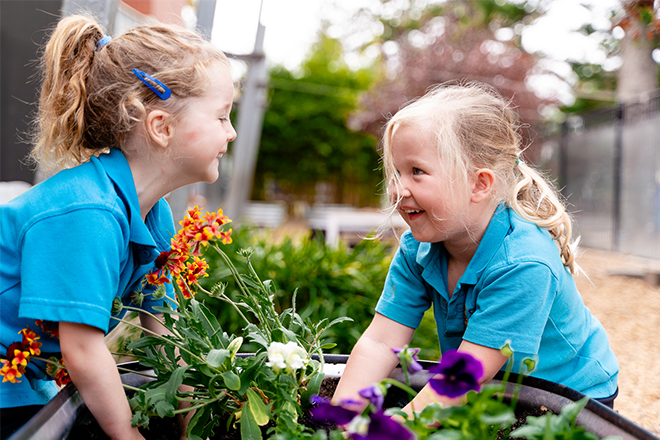
Introduction to Early Childhood Education
Focuses on the fundamental principles of teaching young children, including classroom management, communication skills, and understanding child behavior. This is a core part of an early education degree program.
Child Development
Studies the physical, emotional, cognitive, and social growth of children, enabling teachers to tailor their teaching methods to each child’s developmental stage.
Creating Safe and Healthy Learning Environments
Provides guidance on maintaining cleanliness, safety, and a positive atmosphere in classrooms to ensure the well-being of children.
Nutrition and Physical Wellness
Emphasizes the importance of balanced nutrition and physical activities for the overall health and wellness of young children.
Positive Social and Emotional Development
Trains teachers to cultivate emotional intelligence, social skills, and positive behavior among children through interaction and activities.
Child Guidance and Discipline
Focuses on strategies for guiding children toward becoming responsible and disciplined individuals through positive reinforcement and role modeling.
Special Needs Education
Educates teachers on how to support children with special needs by creating inclusive classrooms and ensuring equal participation for all students.
Reflective and Responsive Teaching
Encourages teachers to assess their teaching methods and adapt based on the responses and progress of their students.
Why These Courses and an Early Education Degree Matter
These courses are crucial for teachers who want to positively impact a child’s early years. They provide practical tools and strategies for identifying children’s interests and strengths while making learning fun and engaging. By incorporating games, storytelling, creative activities, and exploration into lessons, teachers can make education enjoyable and effective.
An early education degree enhances a teacher’s ability to foster children’s curiosity, creativity, and critical thinking skills, which form the foundation of lifelong learning. The degree equips educators with techniques to guide young children effectively, ensuring that learning is both meaningful and enjoyable. Teachers with this qualification are highly valued, as they contribute to developing confident, capable, and socially responsible individuals.
Early childhood education is a cornerstone for building strong, capable, and responsible individuals. Courses designed for teaching young children empower educators to nurture their natural curiosity, creativity, and learning potential. Pursuing an early education degree ensures that teachers have the knowledge and skills needed to guide children through their formative years while providing a safe and stimulating environment. By investing in early education, we not only contribute to the growth and development of young learners but also lay the groundwork for a brighter and more promising future.

